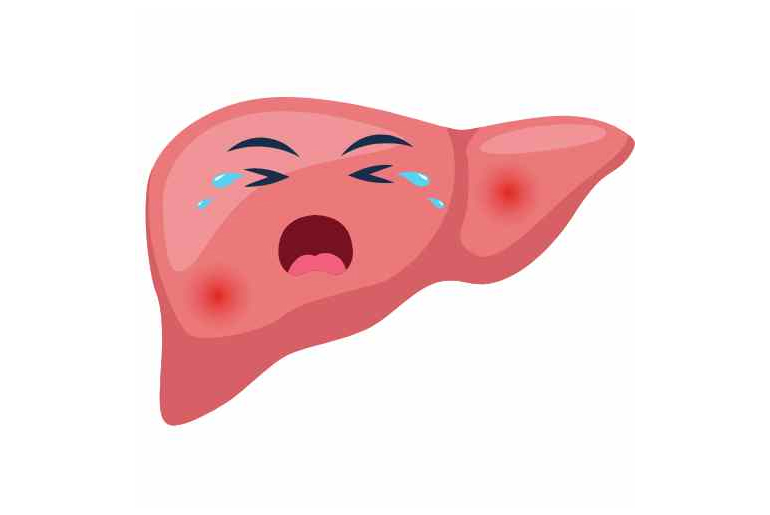Fatty liver disease is indeed a prevalent concern that can significantly affect one’s quality of life, with the potential to progress to liver cirrhosis and cause irreversible damage. This condition arises from the excessive accumulation of fat in the liver, attributed to various factors such as alcohol consumption or a sedentary lifestyle, obesity, and diabetes in the case of non-alcoholic fatty liver disease (NAFLD). Liver cirrhosis, a severe consequence of fatty liver disease, is marked by the replacement of healthy liver tissue with scar tissue, leading to impaired liver function and potentially life-threatening complications. Recognizing the warning signs of liver cirrhosis, such as swelling in specific body parts, is crucial for early intervention and management of the disease. Therefore, maintaining a healthy lifestyle, including regular exercise, a balanced diet, and moderation in alcohol consumption, is essential in preventing the progression of fatty liver disease and safeguarding liver health.
Early stages of fatty liver disease may indeed be asymptomatic and manageable with expert guidance, but as the condition progresses, serious complications can arise. Inflammation and damage to the liver occur as healthy tissue is replaced by scar tissue, impairing liver function. This progression can lead to liver cirrhosis, a condition characterized by extensive scarring and irreversible damage to the liver. Liver cirrhosis can further escalate into liver failure or increase the risk of liver cancer, posing significant health risks.
Indeed, alcoholic patients are susceptible to developing alcohol-induced fatty liver disease (AFLD), a condition characterized by the accumulation of fat in the liver due to excessive alcohol consumption. AFLD can progress to more severe forms, such as non-alcoholic steatohepatitis (NASH), which involves inflammation of the fatty liver, or liver cirrhosis, where extensive scarring occurs, leading to impaired liver function. As the disease progresses, individuals may experience symptoms such as swelling in various body parts and jaundice, indicating significant liver damage. Therefore, it’s crucial for individuals with AFLD to seek medical attention and adopt lifestyle changes to prevent the progression of the disease and reduce the risk of severe complications.
- Swelling in the legs and ankles (edema): Increased pressure from portal hypertension, resulting from liver damage associated with fatty liver disease, can lead to fluid accumulation in the surrounding tissues, causing swelling in the lower extremities.
- Abdomen (Ascites): Ascites, the accumulation of fluid within the abdominal cavity, is a significant sign of advanced liver disease. Liver inflammation and scarring, which are characteristic of fatty liver disease, can cause portal hypertension, leading to fluid leakage from liver blood vessels into the abdomen.
- Feet swelling: Severe cases of fatty liver disease can also lead to edema in the feet, similar to the swelling observed in the legs and ankles.
- Facial puffiness and hand swelling: In severe cases of fatty liver disease, individuals may experience facial puffiness and swelling in the hands, likely due to fluid retention and circulation issues associated with liver dysfunction.
Severe fatty liver disease in males can indeed lead to gynecomastia, characterized by the enlargement of breast tissue due to hormonal imbalances resulting from liver dysfunction. This condition may also be associated with symptoms such as loss of sexual desire and infertility, highlighting the profound impact of liver disease on overall health and well-being. Swelling in specific body parts can serve as warning signs of severe liver disease, although these symptoms may resemble those of other health issues.
Thus, obtaining a confirmed diagnosis through a thorough evaluation, including blood tests, CT scans, and MRI scans, is crucial for initiating appropriate treatment and improving outcomes. Lifestyle modifications, including adopting a nutritious diet, engaging in regular exercise, and abstaining from alcohol, play a vital role in managing fatty liver disease and reducing the risk of complications. By implementing these changes and working closely with healthcare professionals, individuals can take proactive steps to address fatty liver disease and enhance their overall quality of life.
Disclaimer:
The information contained in this article is for educational and informational purposes only and is not intended as a health advice. We would ask you to consult a qualified professional or medical expert to gain additional knowledge before you choose to consume any product or perform any exercise.







